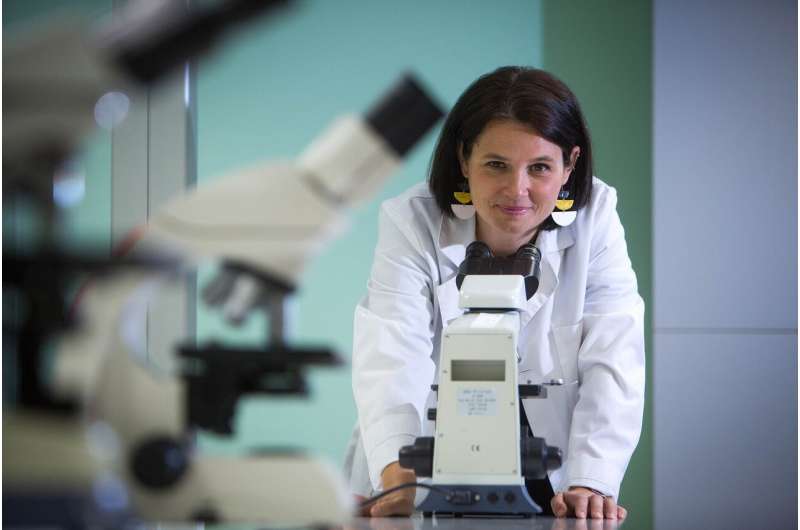Isabel Almodóvar Fernández. Credit: Asociación RUVID
Entertainment sector workers are among those with the highest consumption of psychoactive substances. According to a study of the year 2017, 17 percent of sector workers consume these substances in Spain, a figure falling between France's 22 percent and Holland's 16 percent. The study, conducted by CEU UCH University Nursing degree coordinator Isabel Almodóvar Fernández, included 284 stage assembly employees for shows, festivals and events in Spain, of which more than a third are habitual consumers of addictive substances such as alcohol (36.6 percent), cannabis (35.2 percent) and cocaine (1.8 percent). The motivational nursing intervention program designed by Isabel Almodóvar increased awareness of the low quality of life derived from their addictions and on the need to receive treatment. The results of the study were published earlier this week the International Journal of Mental Health Nursing.
The motivational intervention program guided by professor Isabel Almodóvar, as part of her doctoral thesis, includes group therapy designed to achieve objectives such as the acceptance of the addiction by the participants, their preparation before future consumption risk situations, and the adoption of motivational strategies to avoid future substance abuse.
"One of the keys of this motivation is for program participants to become aware of the relation between the addiction and their true state of health and low quality of life, which leads them to seek treatment," says professor Almodóvar.
High consumption of alcohol, cannabis and cocaine
By way of internationally validated tests, the first part of the study analyzed the drug consumption habits of these 284 sector employees to assess the prevalence of the consumption of different substances, as well as their perception of quality of life related to their state of health. With an average age of 30, these employees admitted having consumed alcohol (94.72 percent) and cannabis (83.45 percent). 66 percent of them consume both substances. "Among these professionals who took part in the study, women consume alcohol more frequently than men, while cocaine consumption is more common among men," notes professor Almodóvar.
In the case of alcohol, the average consumption among participants was 52.8 grams of alcohol a day, surpassing the 40 considered the maximum recommended amount by the WHO for men and the 20 for women. Looking at monthly consumption, the figures of the workers of this sector who took part in the study surpassed the average of the Spanish population in several dimensions: 92 percent of them reported consuming alcohol in the previous month, compared to the 25 percent Spanish average; 74 percent had consumed cannabis, compared to the 6.6 percent Spanish average; and 28 percent had consumed cocaine, compared to the 1 percent national average, according to data from the Ministry of health for 2015.
According to the CEU UCU professor, "for the three substances, the perception of the risk of consumption is low for over 60 percent of participants. Only 15 workers said they had not consumed any of the three substances in the last three months."
Motivational nursing intervention
In the second part of the study, a total 50 workers in five groups took part in the motivational intervention program headed by nursing professionals and guided toward rehabilitating their addiction. These sessions were held in different Spanish Autonomous Communities.
Professor Almodóvar says, "Before the intervention, 60 percent of participants stated not having health problems, but after taking part in the program we designed, this figure dropped to 36 percent. Furthermore, 88 percent did not admit having an addiction problem, but after the intervention, 12 percent of participants increased their motivation to quit their drug addiction. Figures like these reveal the efficiency of the nursing intervention among workers who suffer addictions to psychoactive substances in the entertainment sector, including the assembly of festivals and other events. When they are aware of their low quality of life as it pertains to their health, their motivation to change their behavior in regard to their addictions increases."
The resulting 12 percent effectiveness in the motivation to change after the intervention surpasses the 10 percent threshold set by the WHO as valid for this type of programs.
More information: Isabel Almodóvar‐Fernandez et al. The effectiveness of a brief motivational nursing intervention to reduce psychoactive substance consumption in entertainment‐sector workers: A transversal, observation, and semi‐experimental study, International Journal of Mental Health Nursing (2019). DOI: 10.1111/inm.12620
Provided by Asociacion RUVID






















